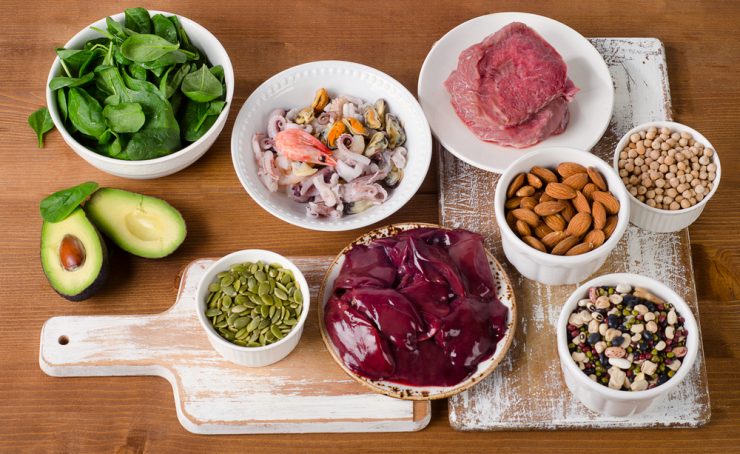Although described as a trace mineral because it’s found in relatively small amounts in the human body, zinc is vitally important for an amazing number of functions; even a small deficiency can lead to widespread health concerns. And its importance is confirmed by the European Food Standards Agency (EFSA) who have permitted more nutrition and health claims to be used on foods and food supplements about zinc, than any other nutrient!
WHY IS ZINC SO IMPORTANT?
Zinc is involved with so many different essential bodily functions, and more than 300 enzyme reactions; these reactions cannot happen unless zinc is present.
Zinc is probably best known for it importance in the immune system; it works in a number of ways within this complex system but primarily increases natural killer cell activity, protecting and fighting viruses. Additionally, it helps to utilise vitamin A, a major antioxidant nutrient also heavily involved with immunity.
This link is also shown through the fact that vitamin A is key for healthy skin, which in turn explains zinc’s importance for the skin; teenagers suffering from acne can often be helped by taking some additional zinc and vitamin A.
Zinc also functions as an antioxidant in its own right, as it’s involved with the powerful antioxidant enzyme superoxide dismutase, hence it fights those age-inducing free radicals.
Zinc plays an essential role in male reproductive health because it’s needed for healthy sperm production, as well as male sex organ function; oysters are one of the highest sources of zinc, hence their ‘claim to fame’ as an aphrodisiac! Zinc is heavily concentrated in the male prostate, eyes, liver, kidneys and muscles, is part of bone and tooth structure and helps support the body’s detoxification processes – quite a list!
BEST SOURCES
Zinc is found in a number of foods, especially in animal foods, including red meat and liver. Shellfish is a good source, including, of course oysters, together with egg yolks, dairy products, wholegrains, beans and quinoa.
FINAL FACT
The mineral copper competes for absorption with zinc and many people can unknowingly have high levels of copper, especially if they have recently moved to a new house with copper pipes.























